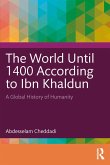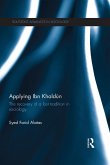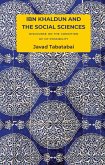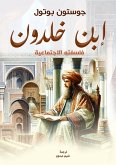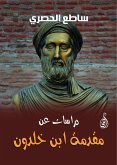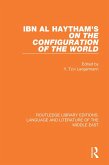Ibn Khaldun looked at history as one of the arts, which on its surface does not exceed the news of days and countries, the fluctuations of conditions, and the demise of kings or states, but on the inside it is an examination, investigation, and explanation of beings and their principles, and knowledge of their sciences. Ibn Khaldun criticized the ancient historians and the corruption of their approach and way of thinking and their lack of understanding of the nature of matters, as well as their illusion of truthfulness, due to their reliance on transmission without rational consideration and knowledge of the origins and rules of politics and societal affairs, their fawning over princes, jurists, and people of the Sultan, and their blind trust in the narrators who convey the news. He believes that the historian must put historical facts under a scientific microscope, and use the method of comparison and criticism to ensure the authenticity and honesty of the narrators and their agreement with the nature of things. In his study of history, Ibn Khaldun resorted to relying on reason and human experience and not on belief, and he saw that the philosophy of history is based on the organic similarity between the individual and society, as the individual goes through different stages in his biological development from birth to youth, adulthood, then death, and so does society, where the state is. They have normal lifespans, just like individuals. The lifespan of the state does not exceed three generations, and it passes through natural stages governed by social law, because it is consistent with the nature of things.
Dieser Download kann aus rechtlichen Gründen nur mit Rechnungsadresse in A, B, BG, CY, CZ, D, DK, EW, E, FIN, F, GR, H, IRL, I, LT, L, LR, M, NL, PL, P, R, S, SLO, SK ausgeliefert werden.



